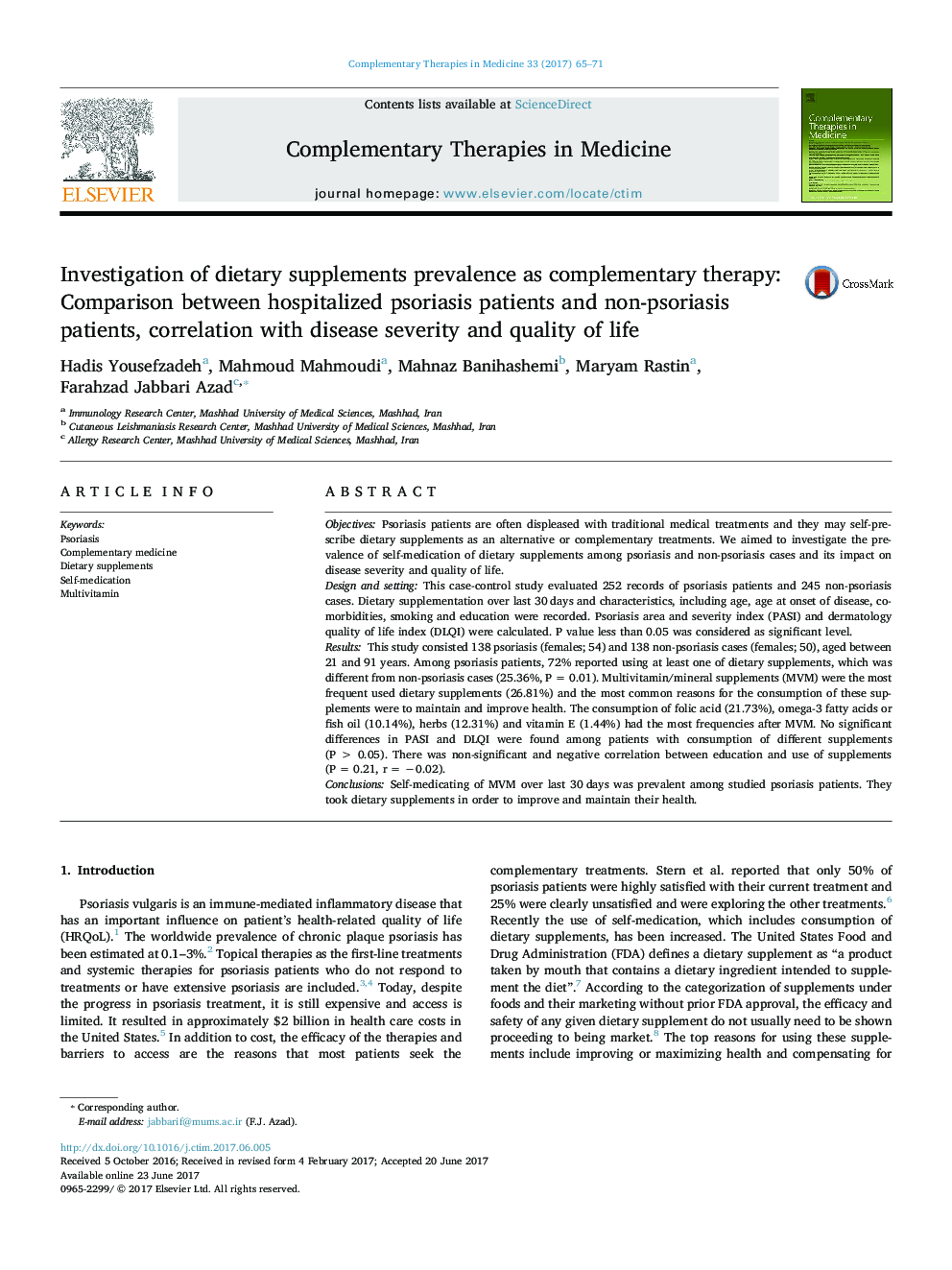| Article ID | Journal | Published Year | Pages | File Type |
|---|---|---|---|---|
| 5565207 | Complementary Therapies in Medicine | 2017 | 7 Pages |
â¢Significant prevalent use of dietary supplements in psoriasis patients was observed compared to the non-psoriasis individuals.â¢There were no significant differences in PASI and DLQI among patients who consumed different supplements.â¢Non-significant and negative correlation between education and use of supplements was found.
ObjectivesPsoriasis patients are often displeased with traditional medical treatments and they may self-prescribe dietary supplements as an alternative or complementary treatments. We aimed to investigate the prevalence of self-medication of dietary supplements among psoriasis and non-psoriasis cases and its impact on disease severity and quality of life.Design and settingThis case-control study evaluated 252 records of psoriasis patients and 245 non-psoriasis cases. Dietary supplementation over last 30 days and characteristics, including age, age at onset of disease, co-morbidities, smoking and education were recorded. Psoriasis area and severity index (PASI) and dermatology quality of life index (DLQI) were calculated. P value less than 0.05 was considered as significant level.ResultsThis study consisted 138 psoriasis (females; 54) and 138 non-psoriasis cases (females; 50), aged between 21 and 91 years. Among psoriasis patients, 72% reported using at least one of dietary supplements, which was different from non-psoriasis cases (25.36%, P = 0.01). Multivitamin/mineral supplements (MVM) were the most frequent used dietary supplements (26.81%) and the most common reasons for the consumption of these supplements were to maintain and improve health. The consumption of folic acid (21.73%), omega-3 fatty acids or fish oil (10.14%), herbs (12.31%) and vitamin E (1.44%) had the most frequencies after MVM. No significant differences in PASI and DLQI were found among patients with consumption of different supplements (P > 0.05). There was non-significant and negative correlation between education and use of supplements (P = 0.21, r = â0.02).ConclusionsSelf-medicating of MVM over last 30 days was prevalent among studied psoriasis patients. They took dietary supplements in order to improve and maintain their health.
